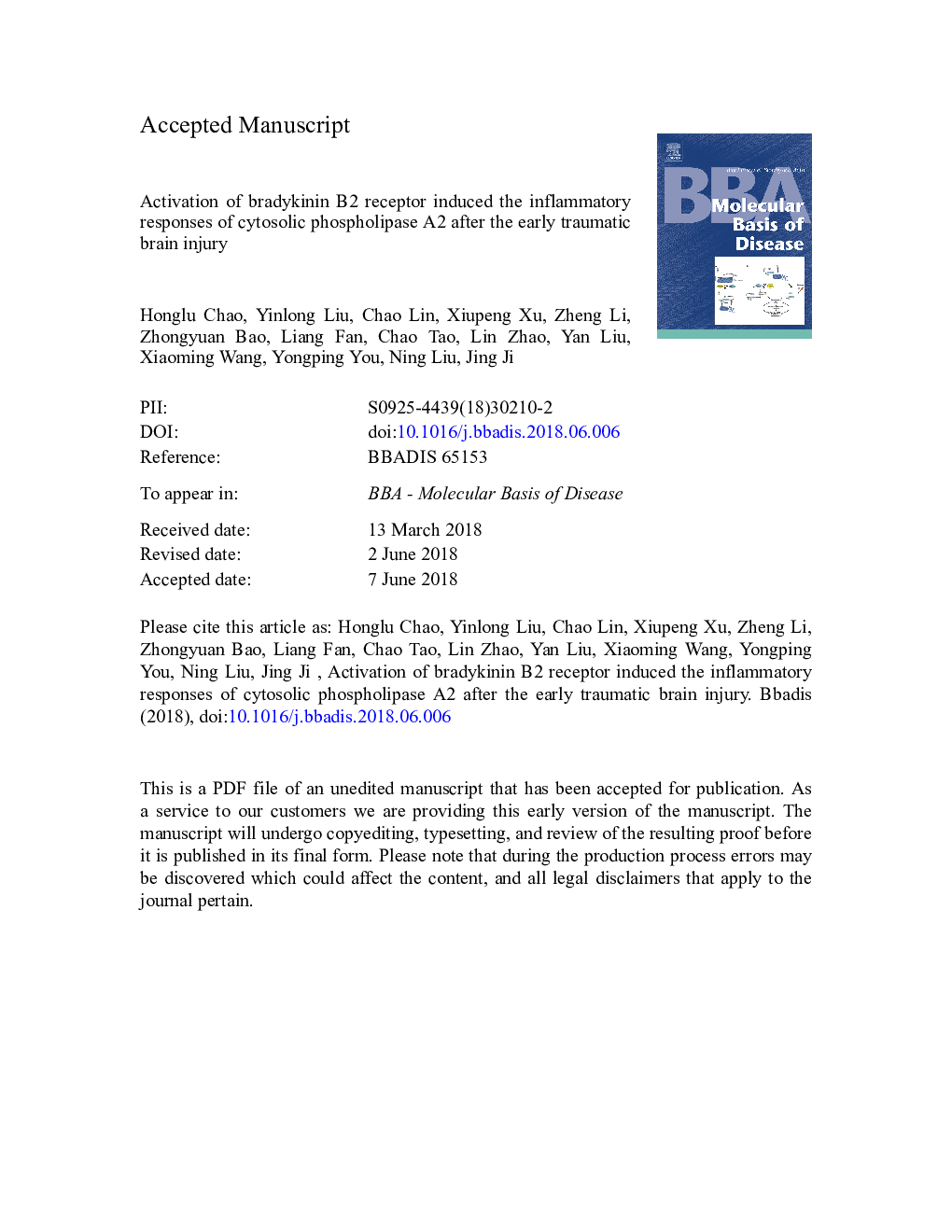| Article ID | Journal | Published Year | Pages | File Type |
|---|---|---|---|---|
| 8258350 | Biochimica et Biophysica Acta (BBA) - Molecular Basis of Disease | 2018 | 38 Pages |
Abstract
Phospholipase A2 is a known aggravator of inflammation and deteriorates neurological outcomes after traumatic brain injury (TBI), however the exact inflammatory mechanisms remain unknown. This study investigated the role of bradykinin and its receptor, which are known initial mediators within inflammation activation, as well as the mechanisms of the cytosolic phospholipase A2 (cPLA2)-related inflammatory responses after TBI. We found that cPLA2 and bradykinin B2 receptor were upregulated after a TBI. Rats treated with the bradykinin B2 receptor inhibitor LF 16-0687 exhibited significantly less cPLA2 expression and related inflammatory responses in the brain cortex after sustaining a controlled cortical impact (CCI) injury. Both the cPLA2 inhibitor and the LF16-0687 improved CCI rat outcomes by decreasing neuron death and reducing brain edema. The following TBI model utilized both primary astrocytes and primary neurons in order to gain further understanding of the inflammation mechanisms of the B2 bradykinin receptor and the cPLA2 in the central nervous system. There was a stronger reaction from the astrocytes as well as a protective effect of LF16-0687 after the stretch injury and bradykinin treatment. The protein kinase C pathway was thought to be involved in the B2 bradykinin receptor as well as the cPLA2-related inflammatory responses. Rottlerin, a Protein Kinase C (PKC) δ inhibitor, decreased the activity of the cPLA2 activity post-injury, and LF16-0687 suppressed both the PKC pathway and the cPLA2 activity within the astrocytes. These results indicated that the bradykinin B2 receptor-mediated pathway is involved in the cPLA2-related inflammatory response from the PKC pathway.
Keywords
Related Topics
Life Sciences
Biochemistry, Genetics and Molecular Biology
Ageing
Authors
Honglu Chao, Yinlong Liu, Chao Lin, Xiupeng Xu, Zheng Li, Zhongyuan Bao, Liang Fan, Chao Tao, Lin Zhao, Yan Liu, Xiaoming Wang, Yongping You, Ning Liu, Jing Ji,
